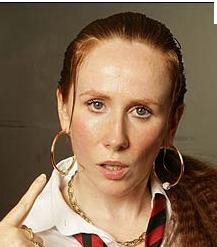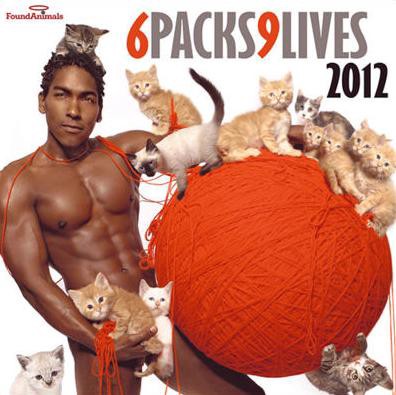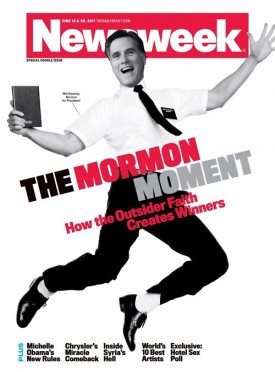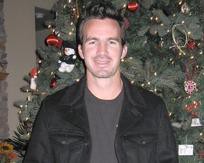It's "Everyone Hates Tumblr" Day :(
Rough day in new-media-land too: Tumblr’s getting it from all sides, for pretty much extorting a developer — threatening to shut down his personal sites because they don’t like a popular browser extension he made — and for not working well with fashion communities. C’mon boys! This kind of stuff is all easy to fix! Everyone’s rooting for you.
Three Poems By Sarah Blake
by Mark Bibbins, Editor
Ha Ha Hum
One of my favorite songs:
Life of a Don, lights keep glowin’,
coming in the club with that fresh shit on, with
something crazy on my arm,
Then, three throat-clearing sounds — sometimes depicted as Ha Ha Hum on
lyrics websites such as azlyrics.com, lyricstime.com, and anysonglyrics.com
A sound we make when we talk with the mouths of Jews.
Channukah, la chiem, chutzpah.
Voiceless fricative.
Russians have a letter for it. In block, an x, in cyrillic, two c’s back to back.
In the words, good, chorrosho, and bad, plocho.
They have other letters I love, for sh, tss, sht, szh, yoo.
The sound Kanye makes — it’s not unlike the French r.
How my name falls back into the mouth like it’s collapsing.
Sa-cha.
In Russian, the r would roll, as when my great grandmother said her name,
as when my great grandfather called to her.
My name means princess in Hebrew.
Yours means the only one in Swahili.
A language once written in Arabic script, now written with letters like ours.
Switched in the 1800’s. Trying for sounds like nz and nd, to begin words.
The mouths we speak with are hidden by our other mouths.
Heartbreak
The couple, who have dated on and off since 2002, got engaged over a lobster and pasta dinner during a vacation on the island of Capri in August 2006.
How does People magazine know this?
I hate to say things look like butterflies, but what should I say — the island
looks like motion? Like a liver?
It’s an island.
You proposed to her and it looks like a butterfly.
The Italian map, covered in via, via, via. The Italian mountain. Citrus and gulls. I have never been to Italy, let alone to Capri. And I have never been to an island so small.
When The New York Times reporters write about 808s & Heartbreak, they write how:
[it] is the product of a tumultuous year in his personal life. His mother, Donda West, died in 2007. . .
in April 2008 he and his fiancé split.
They don’t name her. Alexis Phifer.
If Alexis is the woman in “Heartless,” in the video, thank you
for covering her dress in stars.
I have planned my wedding — sent the invitations, tasted all the cakes, bought my dress, named for its sweetheart top, and sparkling. My mother has RSVP’ed.
I got engaged in the courtyard of a museum in Philadelphia — Museum of
Archaeology and Anthropology.
Mummies resting
behind us, and sculptures from China.
The past pushes us.
I lament what you have lost even if you do not still love her.
I think of all the coves of Capri — Cala del Lupinaro, Cala del Rio, Cala di Mezzo, Cala Spravata, Cala Marmolata, Cala di Matermania. And Kapros, meaning wild boar.
Kanye’s Circulatory System
Upon the Two-Year Anniversary of the Death of My Grandfather Allen
The blood helps because the heart helps because the electricity moves us.
Kanye, my circulatory system looks like yours. So you too have a soft vein
too big for your temple, a pulse in your thumb. You’re still losing your mother.
One reporter called your mother’s death, “more data for the live stream.”
I apologize for him. He thinks, maybe, two years is a long time.
Last year, in Princeton, I tutored a sixth grader in every subject. As he learned
the systems of the body, I did too, beginning with the diagram of the heart.
What new words did you learn then? What new procession of breath
did you practice when I was teaching a boy how to say vena cava and aorta,
when I drew hearts on a chalkboard for him, day after day, and erased,
with my finger, the holes for the pulmonary veins to come in, to
fill the left atrium with the blood we could not draw? You recorded a song.
I’d love if you’d recorded a song. I almost forget again that your heart
looks like mine. You’ve heard the pulse in your ears then. You know
wush is not a foolish way to describe it. You miss her and I miss him but
surely I cannot say if, when you think of death, you, Kanye, think of the heart.
Sarah Blake lives just outside of Philadelphia. Her Kanye West poetry has appeared or is forthcoming in Witness, Sentence, and elsewhere.
There is so much more poetry available right here, in The Poetry Section’s vast archive. You may contact the editor at poems@theawl.com.
'Washington Post' to Shutter Nine Local Bureaus
A sad day at The Washington Post, with the news that we’re closing all of our local bureaus except Richmond and Annapolis.Thu Sep 01 18:24:20 via web
Amy Gardner
AmyEGardner
First they came for… etc.
In late 2009, the Washington Post closed its last U.S. bureaus outside of the D.C. area, including Chicago, Los Angeles and New York. (It also closed bureaus in Johannesburg, Rio de Janeiro and Berlin.) But what of its 11 D.C.-area bureaus? Now there will be two.
First We Fire All the Doctors (With Unwashed Hands)

“Changing the message from ‘Wash Your Hands to Protect Yourself’ to ‘Wash Your Hands to Protect Your Patients,’ the study found, could motivate some doctors and nurses to wash their hands more frequently.”
— I guess. Or, you know, they could just start putting doctors who don’t wash their hands on a month’s unpaid leave. OR! They could forcibly graft a nice hospital-acquired staph infection onto their faces maybe. I don’t know: if doctors aren’t getting the practice of washing hands between patients, should they even be doctors? Sorry, I know all workplace best practices are hard! But this question of “motivation” seems absurd.
Meanwhile, Madonna Is Stealing Film Directors' Jobs

Whatever the crimes committed by Wallis Simpson — marrying a king, sparking a constitutional crisis, fraternising with Nazis — it’s doubtful that she deserves the treatment meted out to her in W.E., Madonna’s jaw-dropping take on “the 20th-century’s greatest royal love story.” The woman is defiled, humiliated, made to look like a joke. The fact that W.E. comes couched in the guise of a fawning, servile snow-job only makes the punishment feel all the more cruel.
Or could it be that Madonna is in deadly earnest here? If so, her film is more risible than we had any right to expect.
— Okay, but how did you like the rest of Madonna’s new film?
Immigrants Also Stealing Totally Unwanted Jobs in UK

“The Daily Mail advertised ten fictitious job vacancies in towns and cities across Britain…. A 25-hour-a-week cleaning job paying £10 an hour that was advertised in London attracted in excess of 225 applications. Of these, just 17 were from British workers.”
— £10 an hour??? That’s like $60!!! Lazy Britons. Anyway, just like in America, immigrants aren’t taking your jobs; they’re just actually applying for them.
Your 2012 "Naked Dudes with Cats" Calendar

Well, here we are. The Internet is done, as discovered here: Introducing the 6 Packs 9 Lives 2012 Calendar. Yup, scantily clad guys with cats. It’s for charity… CAT CHARITY.
Ask An Ex-Mormon! A Conversation

My friend Beau and I grew up together in Tucson, Arizona, where he was the quarterback of our high school’s football team. We’ve since traveled around Italy together, sipped wine and talked about music until sunrise, and, one memorable time, got drunkenly chased out of a Vegas casino. Beau and I have a lot in common, our vices included, which is why I always forget one big thing about him: Until very recently, Beau was a Mormon. He never went door-to-door trying to convert people, nor did he ever march against gay rights. But for 18 years he faithfully went to a Mormon temple every Sunday with his parents and three brothers.
Mormonism has become an increasingly visible part of our culture in the past few years, what with
Big Love’s five-year run on HBO, Book of Mormon on Broadway, Mitt Romney leaping on the cover of Newsweek and “I’m A Mormon” billboards in Times Square. Yet while we often hear about Mormons, we hardly ever hear from them. Instead, we often get our reports second-hand, and from a writer whose sneer (and I’m guilty of this, too) poisons the conversation immediately. In an effort to more honestly understand one of America’s most-feared religions — and one that’s getting bigger all the time — I turned to Beau, who has left the church despite protestations from his devout family and now manages a wine store in Brooklyn.
Cord Jefferson: To start with, let’s talk about your background in Mormonism, because I don’t even really know it.
Beau Rapier: My dad’s family converted before he was born and my mom’s great-grandparents were Mormon — maybe great-great. My dad initially married a non-Mormon out of high school and had two kids with her (my half sisters), then went to Vietnam. After that he wasn’t really church going for some years but became so again when he got divorced and began dating my mom.
CJ: On a scale of one to 10, how Mormon would you say your childhood was? Ten being insanely strict? No soda?
BR: I guess a seven? We had soda. Because of my dad’s first marriage and the fact that his dad was not a very observant Mormon. My childhood was Mormon but not in a fully sheltered way — and Tucson is not Provo. I always had non-Mormon friends.
CJ: Lately, everyone seems to be talking about the “strangeness” of Mormonism, but when I would hang out at your house, I never felt strange at all. Your parents were always super nice to me. I even remember your dad driving me and your brother to buy Bush tickets. It’s not like they were banning rock concerts and making you read scripture all the time.
BR: No, they loved pop and rock music. I can’t tell you how many times I heard Fleetwood Mac’s Rumours. And I never felt like we were only Mormon — but I still definitely felt different than my friends, most of whom were not Mormon.
CJ: What do you mean you weren’t “only Mormon”?
BR: It never completely defined me. I recall being almost embarrassed by it.
CJ: Why embarrassed? Lots of other kids were religious in Tucson.
BR: Because I thought I was different. Other kids were religious, yes, but not Mormon, at least not the ones I was friends with. I couldn’t go to birthday parties on Sundays, my parents weren’t friends with the non-Mormon parents, etc.
CJ: Did you like hanging out with the other Mormon kids we went to school with?
BR: Nope.
CJ: I remember a bunch of the other Mormon kids were always way more tight-assed than you and your brothers, which is why it surprises me that you said your house was a seven. The [really, really devout Mormon family from our neighborhood] must have been like an 11 then.
BR: Yeah, they were pretty much already in the celestial kingdom. The idea that you can build a Mormon fortress in which to ignore all the realities of the outside world was epitomized by them, in my mind.
CJ: It sounds like you were skeptical from early on. Can you remember the first time you thought, “Y’know, this might not be for me”?
BR: I don’t know about skeptical. I didn’t really think about it. I think teenagers wonder how they fit in the here and now, not how their existence fits in the cosmos. Basically, I didn’t really question my faith or background. I just hid it until I had to confront it, and that began at the very end of high school and then continued for years.
CJ: But you were drinking and having premarital sex, right? Isn’t that kind of an indirect way of questioning your faith? Is disobeying questioning?
BR: It can be, but I don’t think I was really pondering questions of faith when I started drinking in high school, and the premarital sex didn’t actually happen until after I graduated. I think looking back the answer is yes, I was looking at other options. But I didn’t think about it in those terms then. I think lots of people of every faith experiment in these ways but ultimately decide to embrace their religion.
CJ: Sounds like your dad did that.
BR: For sure.
CJ: Did your parents know about your rebellion, or did you hide it from them?
BR: I did hide it, but they were having their own marriage issues at the time, so it was easier for me to do my thing without much scrutiny.
To be honest, I’ve held out the possibility of “coming back” to my mom for some years, and only in the last four or five did that possibility diminish to a point of becoming almost impossible.
CJ: So when did you actually start actively questioning the faith?
BR: In college, I guess. Kind of a cliché, but I really began to be interested in what I thought and believed and slowly began to question the principles and ideas that Mormonism is based on. Things came up and we all — you, I, our friends — were more and more interested in social, political, historical and even religious issues. That influenced me immensely.
CJ: Were you questioning the very simple red flags like, “Wait, Jesus was in America and nobody knows how he got here?” Or were you questioning big picture things like, “Do I believe in organized religion at all?” Both?
BR: Hmm. No to the first question. I think all religions expect a willing suspension of disbelief on the part of the faithful, so a god or a son of a god traveling to another continent is peanuts: he just got there. Of more interest to me was how the Mormon church responded to social issues: questions of morality around race, sexual orientation, etc. I think the questioning of big-picture things came later, but as a result of all the initial little stuff.
CJ: You and I spent a lot of drunken nights together during this period, and until right now I wasn’t aware that you were trying to hash out your faith that whole time. This was a really internal struggle for you, huh?
BR: Yeah, I suppose so. But I was having a great time and not being very introspective about it, except maybe in my writing from time to time. I don’t think I really began questioning God and existence until a couple years ago, after I’d been married and had a kid. Drunken nights may seem like a great time to unload but in fact they often focus you on the exact moment — which is great and I celebrate it.
CJ: I imagine once you were out of your parents’ house that you stopped going to church.
BR: Basically. I think I skipped a few times toward the end of high school and got away with it. But when I went to college I never once went to church on my own, which, looking back, is pretty telling.
CJ: Did your parents know?
BR: Sort of, though they always asked about involvement in the campus church, and I’m sure I let them think that I was participating in Mormon stuff. There were a lot of Mormons at Arizona State but I purposefully never connected with any of them.
CJ: I guess I went into this conversation stupidly thinking that there were going to be certain clear milestones that marked your move away from faith, but that’s not really how life goes. It’s all just gradual.
BR: I think there are milestones when you look back. One was certainly my decision to lose my virginity to my girlfriend at the age of 18. I did think about that one pretty long and hard.
CJ: Is that one a big no-no for Mormons?
BR: Sure. It isn’t actually a game over, no-going-back decision, but at the time I thought it was. I think plenty of Mormons have premarital sex but then repent and ultimately rejoin the community. To be honest, I’ve held out the possibility of “coming back” to my mom for some years, and only in the last four or five did that possibility diminish to a point of becoming almost impossible.
CJ: What do you mean “held out the possibility of coming back”? You told your mom you might be Mormon again one day?
BR: Not exactly. I told her not to stop praying for me or thinking that I might repent. At the time I started doing that I had read a lot about writers and artists who had “returned” to religion later in life. I felt like I couldn’t rule that out for myself. Now I tell her that because even if I don’t think it’s true, I respect other people’s needs to order their universe.
CJ: And for your mother to be comfortable she needs to believe there’s a chance you’ll return to the fold one day?
BR: Yes, that is entirely true. She needs to believe that.
CJ: So, here’s something: While your move away from Mormonism was gradual, Mormonism almost immediately rejects people who question the faith. I remember when you couldn’t see your brother get married because you weren’t allowed to enter the temples. At what point did Mormonism stop considering you a Mormon? Was it before you stopped considering yourself a Mormon?
BR: They still consider me a Mormon, just not one with the privilege to enter the temples. I lost my temple privileges when I stopped applying, though I’m sure I could have lied.
CJ: Hold up, you have to apply for privileges?
BR: You need what’s called a “temple recommend,” which is given by the bishop of your ward. You have to say you obey the rules and pay tithes.
CJ: Do they give you a certificate or something?
BR: Yes, it looks more or less like a business card.
CJ: Holy shit. I had no idea. You can literally be “a card-carrying Mormon”?
BR: Exactly.
CJ: That’s a perfect segue. Let’s talk some Mormon myths. Everyone’s favorite is the holy underwear. What’s up with that?
BR: I would have to say that I don’t know entirely since I’ve not participated in the ceremony that explains them fully. My understanding is that they represent a symbolic shield from the temporal and often immoral mortal world.
CJ: You only get them when you get married in a Mormon ceremony?
BR: Um, I think you also get them before you go on a mission.
CJ: The mission! I forgot! Did you ever consider the mission?
BR: Not really, though I never officially said I wasn’t doing it. I just let the window of opportunity pass. Another instance of not manning up to my real feelings.
CJ: What’s the window?
BR: Most people go between 19 and 21, though a little later for women sometimes. There are also missions for retired couples.
CJ: OK, back to the myths. Why can Mormons drink caffeinated soda but not coffee?
BR: That’s not exactly right. Some LDS authorities have said no caffeine, no Coke, no Pepsi, etc. Others, however, focus on the original “word of wisdom,” which says no coffee or tea. It’s still unclear in my mind.
CJ: How about the racism? We’ve talked about this one a lot over the years. From what I’ve read, the church has backpedaled a ton on its racist positions, most likely in an effort to get more black converts. What’s up with the racism in Mormon doctrine?
BR: I hesitate to act as an authority on LDS doctrine, because I’m not. But clearly there was racism inherent in the doctrine. As I understand it, “blacks” could not receive the priesthood in the Mormon church until 1978. One question I always had was who is black and who isn’t? Who decides?
CJ: Like, was anyone brown off limits, or was it just people of African origin?
BR: Right. The official church stance ended before I was born, and it is hard to say from a personal stance, because there weren’t a lot of black people in Tucson and the ones who were weren’t Mormon.
You can join the church and, no matter what, everything is cool. It’s just a question of how cool. Do you want to give up smokes and whiskey for that extra level of eternal salvation?
CJ: I remember when a Mormon girl in my 6th-grade geography class straight up asked the teacher if it was true that blacks were marked for their sins. Some of that stuff was obviously still being taught
BR: Yeah. I never knew and still don’t know what was considered black in the LDS church, other than they adhered to the Biblical idea of a curse on Cain and the African peoples (which is crazy enough!).
CJ: But now that’s all over, right? Blacks are now all good with the Mormons?
BR: I don’t think most of the people I knew growing up in the church were racist, and certainly no more so than a random sampling of the population, which isn’t exactly comforting. But there were a few obvious ones, just like among the parents we knew.
CJ: How about Mormon sexism? I feel like pretty much every major religion, if you go back to its origin, is sexist. Is Mormonism more so?
BR: Not that I’m aware of, unless you take the outliers (i.e. polygamists), who are now not a part of the church by official decree. Though I should say that the conservative focus on “family values,” which many Mormons back, is, in my opinion, not without some hints of sexism
CJ: True. So polygamists are the Mormon radicals?
BR: Polygamists are not allowed in the church. They can’t get temple recommends and thus are not, as you said, “card-carrying Mormons.” But I think they like it that way. They’ve established their own break-off religion, which has and wants nothing to do with mainstream Mormonism.
CJ: Based on a lot of what you’re saying, aside from the scripture and banning outsiders from temples, Mormonism doesn’t really sound so different from a lot of other Christian sects. Lots of Christians believe homosexuality is a sin, and a great many Christians supported Prop. 8. Why do Mormons get singled out so often?
BR: It’s a younger religion, for one. And there is less of a place for in-betweeners — those who want to be Mormon but less aggressively — as opposed to, say, Catholics who use condoms against the Vatican’s wishes. That in-or-out mentality can make Mormonism seem harsher, and it’s much less inviting to outsiders who want to explore it. Where Prop. 8 is concerned, I think a lot of other Christians supported it, but certainly not to the extent Mormons did. Also, because Mormons are relatively removed from the political sphere, when they do get involved it’s bigger news. I mean, how often do people mention that Harry Reid is a Mormon? He doesn’t publicly discuss his beliefs as openly as politicians from other faiths.
CJ: I think a lot of people who are non-religious, myself included, have this visceral idea that Mormonism is somehow “worse” than other religions. Like, it seems more cultish. Having taken a step back from Mormonism, do you see why people might think that?
BR: Sure, there is an inherent “other” issue on both sides here. Mormons were made to feel like outcasts by other religious groups in the middle of the 19th century. They then ended up embracing that and to this day they wear that status as a badge of honor. When they are singled out or “persecuted,” it’s just a sign that they are God’s “chosen people.” Sound familiar? Personally, I think that narrative will fade with time as they become more integrated with society, as all religions seem to do.
CJ: Scientologists will probably always get fucked with.
BR: Haha! Maybe not. John Travolta’s triracial great-granddaughter will probably be president — and still a Scientologist.
CJ: You’re one of four brothers, and it amazes me that you’re the only one of the four to leave the church. I don’t know your brothers well, it just seems strange that the oldest, the one the younger ones look up to, left, and the others stayed. Do you have any theories about why you’re the only one to split?
BR: I can’t really explain it. Maybe I’m naturally more skeptical? I think my individual experiences have something to do with it; my friends — my real friends, like you — certainly come into play. But I guess it is all of this and more. Recent studies suggest that children in the same family have very different experiences growing up based on birth order and mitigating factors in their parents and other family members’ lives. That being said I’m happy for all my brothers and the lives they lead. Even if we don’t agree on everything, we love and respect each other, so I’m thankful for that.
CJ: Does your family believe you’re going to hell?
BR: No. There is no “hell” in the LDS doctrine.
CJ: Oh! I did not know that. Is there anything comparable?
BR: There are different levels or kingdoms in eternity — three, I think — but only the top one allows you unfettered access to your family and loved ones. That level is reserved for card-carrying Mormons or those who were baptized post-mortem (yup, that happens). The bottom tier isn’t hell, it’s just not perfect paradise. It’s sort of like being stuck in a nice place forever.
CJ: And that’s for EVERYONE? Even nonbelievers?
BR: Yeah. It’s easy to see the appeal, right? Stuck in on OK place for eternity. It’s not so bad.
CJ: Totally. That’s actually really progressive compared to trying to scare people into thinking they’ve got a lake of fire to look forward to if they don’t obey all the rules.
BR: That’s part of the reason Mormonism is still growing big time. You can join the church and, no matter what, everything is cool. It’s just a question of how cool. Do you want to give up smokes and whiskey for that extra level of eternal salvation?
CJ: Unlike some people I’ve talked to who have drifted away from their childhood faiths, you don’t sound very bitter about your years in the church. It almost sounds like you think you could have had a happy life in the church. And it definitely would have been easier where your family is concerned. What’s the trade-off for you? What made leaving worth it?
BR: The trade-off? I don’t know. A small part of me still hopes I might find some religion in a miraculous way later in life. But until then I have a wife and son whom I love and adore, and I don’t think I would have them in another scenario in which I stayed Mormon. I also have intellectual honesty. I feel totally in touch with myself, and when I feel something now, I know I’m feeling something real. I guess in place of searching for complete understanding I’ve decided to search for peace and happiness that I can have now. I don’t think paradise or heaven is an absence of strife or problems; I think it’s an acceptance of them, and I want strife in this life.
CJ: Having been raised in a faith, and now raising a son, do you feel better about raising a secular child, or do you think he’ll be missing out on something?
BR: Good question. I do feel a little guilty that I can’t in true faith give him answers to some of the big questions. But I also feel that we all have to face questions of existence, and I’ll be honest with him and he will know that I love him unconditionally and from there he’ll have to do the same thing we all should do and become an adult. Hopefully, that will take a very long time, ’cause I like him as he is now.
CJ: OK, last question: Throughout its history, Mormonism has parted ways with plenty of former tenets (e.g., the polygamy, the racism, the caffeine). Do you think it’s just a matter of time before gays are accepted into the fold?
BR: If by “accepted” you mean “given the right to marry and all the other privileges” then I think it is definitely a matter of time, albeit a lot of time. I hope that that will happen in most major religions eventually, but it will probably be long after it does politically and socially. So we’re talking decades, if not centuries, and I seriously doubt in our lifetime. But as it happens I think it will happen in the LDS faith, too. Before they become obsolete they will accept gays.
CJ: And President Romney?
BR: No chance.
Cord Jefferson is a senior editor at GOOD.
Missed Connections
@joshuafoer Please follow me so I can DM you.less than a minute ago via Mobile Web
Bill Keller
nytkeller
“There are some people partial to direct messages on Twitter and others oblivious to that corner of the Twitterverse. There are some who look at Facebook messages before anything else, and others whose Facebook accounts are idle, deceptive vestiges of a fleeting gregariousness that didn’t survive their boredom with Rebecca’s bread dough (‘It isn’t rising! Tips?’) or Tim’s poison ivy (‘Itching and itching! Remedies?’). I know only a handful of people with just one e-mail address, but I know many with three or more, and not all of these people understand automatic forwarding. My friend M. was recently reacquainted with an in-box unattended for a year. It was stuffed with hundreds of unread messages — some, remarkably, from people flummoxed by her aloofness.”
— Frank Bruni examines the baffling complexities of communication in our new tech-savvy era. Above, a Twitter user illustrates his point quite nicely.
Spoofing the Dead

Have you caught up on the terrible story of Christopher Ryan Smith? The Internet entrepreneur was traveling in Africa all throughout the second half of last year, according to the emails he was sending his family. Unfortunately, he was dead the whole time, having been killed by his terribly secretly shady business partner. Horrible story! Also, how stupid: you buy yourself six months to get away with a murder by posing as the poor dead fellow, and you don’t even flee the country? Moron. Still, gives one ideas.
